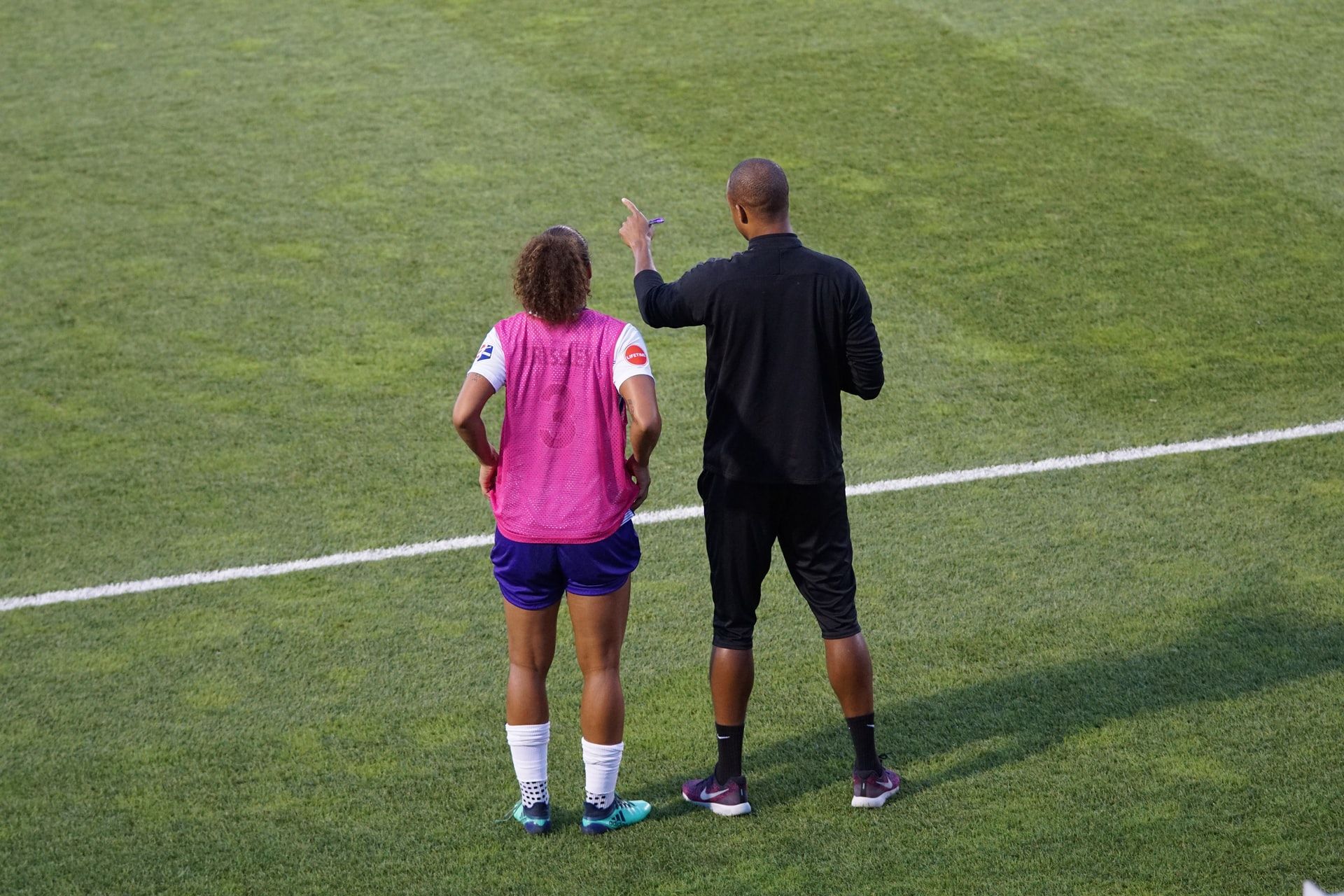
Leadership and teamwork are talked about a lot in sports, but very few teams spend time developing players or coaches in these areas. During our recent Champion’s Mind webinar on this topic, we received a lot of questions about the mindset aspect of teamwork and leadership, which I’ve answered in this post.
How can I handle a senior who constantly challenges the team culture I’m trying to build as a new coach without dismissing them from the program?
The first question to ask yourself is, “Does the player feel dismissed or undervalued by this new culture?” There has to be a reason why they’re acting out, and it could be because they’re feeling sidelined, excluded, or minimized. It would be useful for you to ask them what they think you expect from them. Often a player will answer with a list of stats, when what you really want is for them to model team values to younger players, try their hardest in practice, and serve their teammates. This is a disconnect I’ve seen over and over at all levels of sport. It can also be helpful to include a senior player in some of your decisions. This way, they will feel like they’re valued and are making a contribution to the team.
If you can get to the root of the issue, clearly communicate your expectations of this player, and make it clear that they’re a valuable part of your plans, then their behavior should improve. If it doesn’t, you need to consider how much of a role you need them to play this season. If they’re a talented athlete on a team that’s subpar overall, you might be stuck with them. But if you have a deep team with several stars and they’re not on the list, it might be time to suggest that you part ways if their actions and words continue to be toxic. Be crystal clear about where your line in the sand is and don’t be afraid to enforce consequences if it’s crossed.
I’m not able to meet with my players in person because of COVID-19 restrictions. What are some ways we can build teamwork on Zoom calls?
Getting to know each other is the foundation of great teamwork. One of the exercises I have coaches assign each player is to write down three things they’d want you to know about them as an athlete and another three as a person. Then reverse the process and tell them several things you’d like them to know about you as a coach and a human being. When you exchange lists, it might not seem like a big thing, but it will help you work more effectively together. This is an example of the “connection before correction” principle, whereby your athletes will be more receptive to you giving them instructions and constructive criticism if they trust you and know that you have their best interests at heart.
You could also borrow another great team-building exercise from Cori Close, the UCLA women's basketball coach: The 3 Hs. Ask each player to share a hero they admire, a highlight of their career so far, and a hardship they’ve overcome. This is a fun activity that helps players to learn more about each other’s personalities. One caveat before you start: make sure everyone understands that they will need to keep their teammates’ 3 Hs confidential. This way everyone can embrace full disclosure without worrying about what they say leaving the room.
I coach athletes in an individual sport. How can I foster better teamwork between them?
In sports like cycling and track and field, competitors are often chasing their own aims in a team context. I find that it’s helpful to share their personal targets for the season with each other, and then to team up with a goal buddy. People naturally want to pick their existing friends, so to make it more interesting, you could assign everyone a partner who they don’t know very well or who competes in a different event or discipline. For example, if it’s a track team, you could pair a distance runner with a sprinter and a discus thrower with a long jumper. You could also bring male and female athletes together or pair veteran leaders with younger, less experienced athletes. This way your team will come together as a whole.
Check back soon to read Jim’s answers to more leadership and teamwork questions.
Want to Develop Teamwork and Leadership on Your Team?
If you’re a coach who’d like better teammates and leaders on your roster and wants to develop your own skills in these areas, you’d benefit from an entire module in our Champion’s Mind course.
To find out more about it and 11 more on topics like athlete mental health, positive self-talk, mental toughness, and confidence, check out this webpage. Ready to see the course in action? Schedule a demo here now.
Whether you’re a coach, athlete, or sports parent, you can listen to the first two modules for free by downloading the Champion’s Mind app for your iPhone or Android device.

